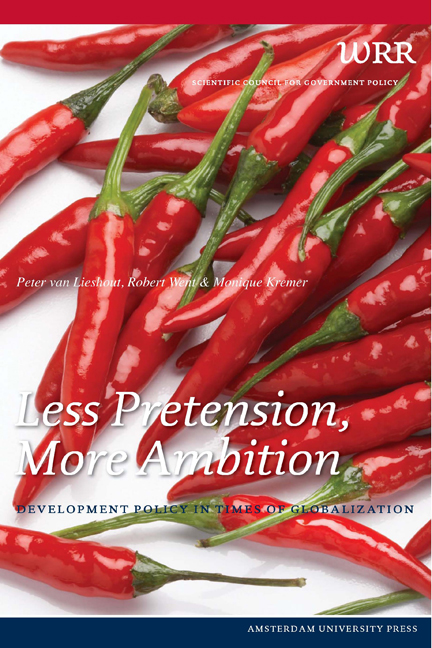Book contents
3 - Understanding Development
Published online by Cambridge University Press: 14 January 2021
Summary
Development aid – and this is sometimes forgotten – is about development. No matter what the motives for development aid might be, it is always important to have a clear picture of how ‘development’ should be interpreted. The answer to that question can provide a framework for assessing how ‘development’ might be stimulated and how this relates to the current organization and control model. This chapter addresses the question of what development is, and how the Western community has, in that respect, become sadder and wiser.
DEFINING DEVELOPMENT
What people mean by development often remains implicit. Nevertheless, there appears to be a common thread in public debates and academic literature. Development is almost always defined as a deliberate acceleration of modernization, interpreted as the synchronized fourfold transition of economy, government, political system, and society. Modernization is envisaged as what has been achieved in the West since the nineteenth century: the creation of a well-developed and productive economic system embedded in international trade relations, a government apparatus that is able to provide or help provide essential services in the fields of education, healthcare, housing, and security, a political system that ensures collective decision-making processes resulting in citizens feeling connected to the outcome and each other, and a society which is sufficiently open and offers space for various individual and collective ambitions.
Certainly not everyone will entirely agree with this description. Over the past twenty years, there has been growing resistance to an interpretation that implies that the Western model is the best, and the above formulation comes close to doing just that. However, closer examination reveals that there are not many radical alternatives, as shown by those who have studied the many attempts of countries and people from the South to produce their ‘own’ formulations. A wellknown variant of this non-Western perspective is the Beijing Consensus (Ramo 2004), but the list of ‘perspectives from the South’ is much longer (Matthews 2004). Anyone who strips these formulations back to the bare bones will see that they can largely be interpreted within the above framework. This is borne out by study of the Beijing Consensus.
- Type
- Chapter
- Information
- Less Pretension, More AmbitionDevelopment Policy in Times of Globalization, pp. 49 - 86Publisher: Amsterdam University PressPrint publication year: 2010



